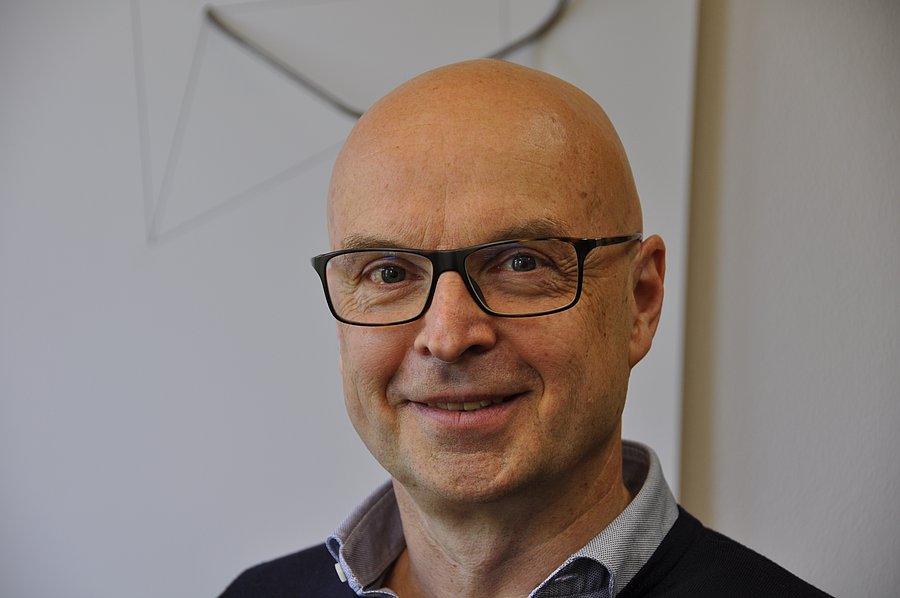
Foundation of the authors' association PEN
Prof. Dr. Matías Martínez / German Studies
Photo: UniService Transfer
International understanding among the writing guilds
The literary scholar Matías Martínez on the founding of the authors' association PEN 100 years ago
On October 5, 1921, PEN, probably the best-known international authors' association, was founded. What does PEN actually mean and what is behind it?
Martínez: On the one hand, PEN is an acronym for 'Poets, Essayists, Novelists', and on the other hand, of course, it is the English word for 'writing pen'. So the name is a play on words, which also as such refers to the profession of the members. The association was founded by the English novelist Amy Dawson Scott in London.
For what reason was the Authors' Association created?
Martínez: After the catastrophe of the First World War, it was intended to serve peace and international understanding by bringing writers from as many nations as possible into conversation with one another in a humanistic spirit. That is why there were and still are national PEN centers on the one hand, and the International PEN as an umbrella organization on the other.
The authors' association originally emerged from the peace movement and, with its principles, fights above all for freedom of opinion, freedom of the press and against any kind of censorship. Does it really have any influence? How political is this association?
Martínez: It is difficult to measure the actual (not just hoped for and claimed) influence of writers on real politics. Writers, after all, are not policy makers, nor are they experts who are asked for advice because of their expertise. On the other hand, they draw their special, always vulnerable authority precisely from their distance from power and specialized expertise. Writers are self-appointed experts on the subjectively experienced general. They can try to help shape a social atmosphere, which then indirectly becomes politically effective. In its history, PEN has repeatedly been the victim of politics; on the other hand, it has certainly led debates and formulated positions that have been heard socially. The two PEN committees 'Writers in Prison' and 'Writers in Exile', which support imprisoned and displaced writers, have concrete political significance.
The first president of PEN was John Galsworthy, who later won the Nobel Prize for Literature. He saw no place for politics in the association, the motto was: "No politics, under no circumstances". But this motto didn't last long, did it?
Martínez: No. At the annual meeting of the international PEN in Berlin in 1926, German writers like Ernst Toller and Bertolt Brecht demanded that PEN be politicized. As early as the 1920s, all members had to commit to a universalist charter that advocated freedom of the press and freedom of expression and opposed censorship, nationalism, and class and racial discrimination. With the National Socialist Gleichschaltung of the cultural and literary associations in 1933, this attitude led to conflicts.
During the National Socialist period, all Jews and Communists were excluded from the German authors' association starting in 1933. The international PEN did not condemn this. Why not?
Martínez: That was a temporary uncertainty, in which, however, a fundamentally difficult position of PEN as an international organization becomes apparent. To this day, PEN tries, sometimes more, sometimes less successfully, to stand up for its basic political convictions and at the same time to keep out of national day-to-day affairs. The German PEN Center was dissolved in 1933/4 (unfortunately also with the help of one of my favorite authors, Gottfried Benn) and replaced by a 'Union of National Writers'. As a reaction, the 'PEN Center of German-speaking Authors Abroad' was founded with Heinrich Mann as president.
In 1947, the German PEN was re-founded, then divided into East and West in 1951 and did not come together again as a common association until 1998. What are its priorities today?
Martínez: Both German and international PEN defend freedom of expression and threatened writers worldwide. Both supported Salman Rushdie, for example, without any ifs or buts in his fight against the life-threatening fatwa. Incidentally, it is remarkable how long it took for the PEN centers of the GDR and the Federal Republic to reunite. The manifold discussions of the participating writers on the way there show at the single case of literature like in a burning glass many fundamental problems of the German reunification.
PEN International acts as an umbrella organization for 144 centers in 102 countries and is an advisory member of UNESCO. Heinrich Böll was even president of the international PEN from 1971 to 1974. How are members actually selected?
Martínez: The selection of members still reflects the fact that PEN was founded along the lines of English clubs. Anyone who has published at least two books is eligible. But even then, you can't apply yourself; you have to be nominated by two members and elected by the general meeting. Every new member must explicitly commit to the principles of the charter of International PEN.
Uwe Blass (conversation from 04.10.2021)
Matías Martínez studied German and Philosophy at the Georg-August-University in Göttingen and received his doctorate there. He habilitated at Ludwig-Maximilians-Universität in Munich in 2001 and came to Bergische Universität in 2004. Here he holds the chair of Modern German Literary History.
